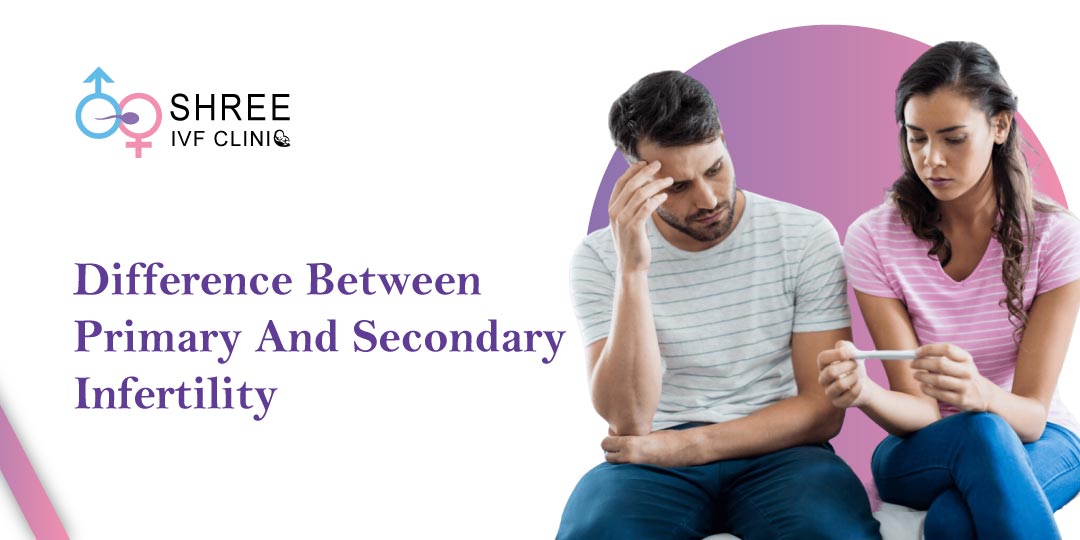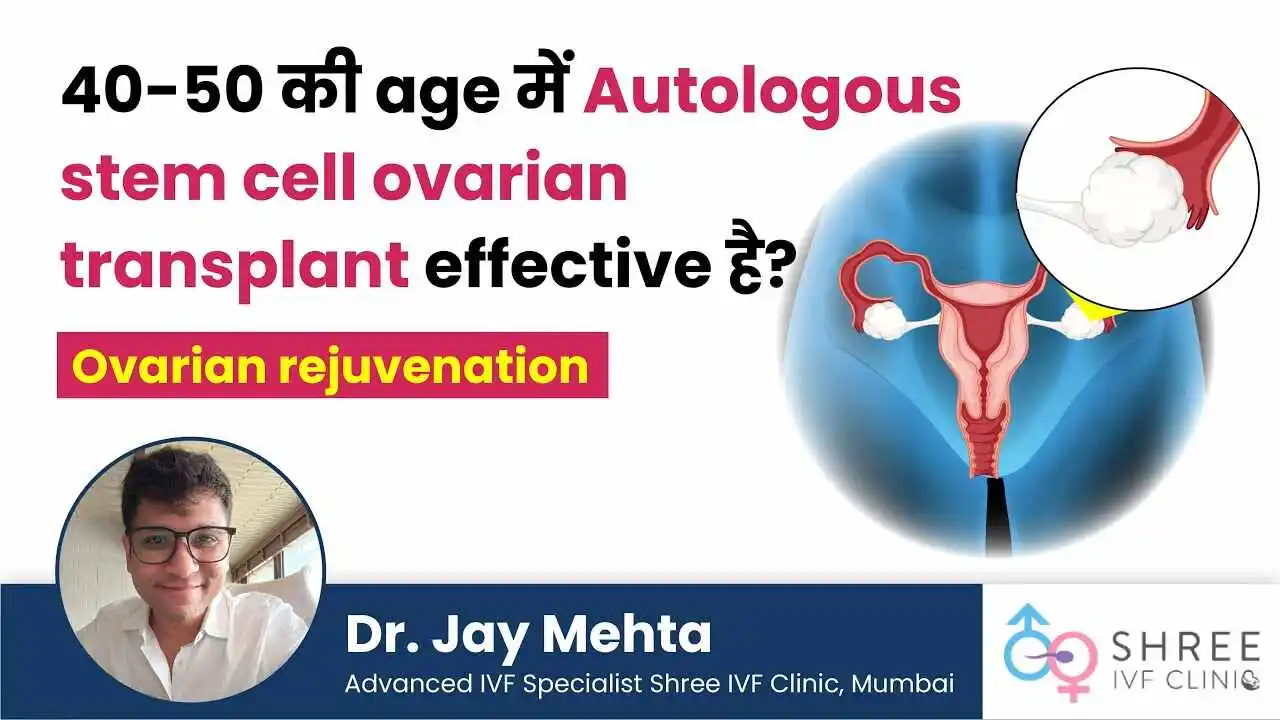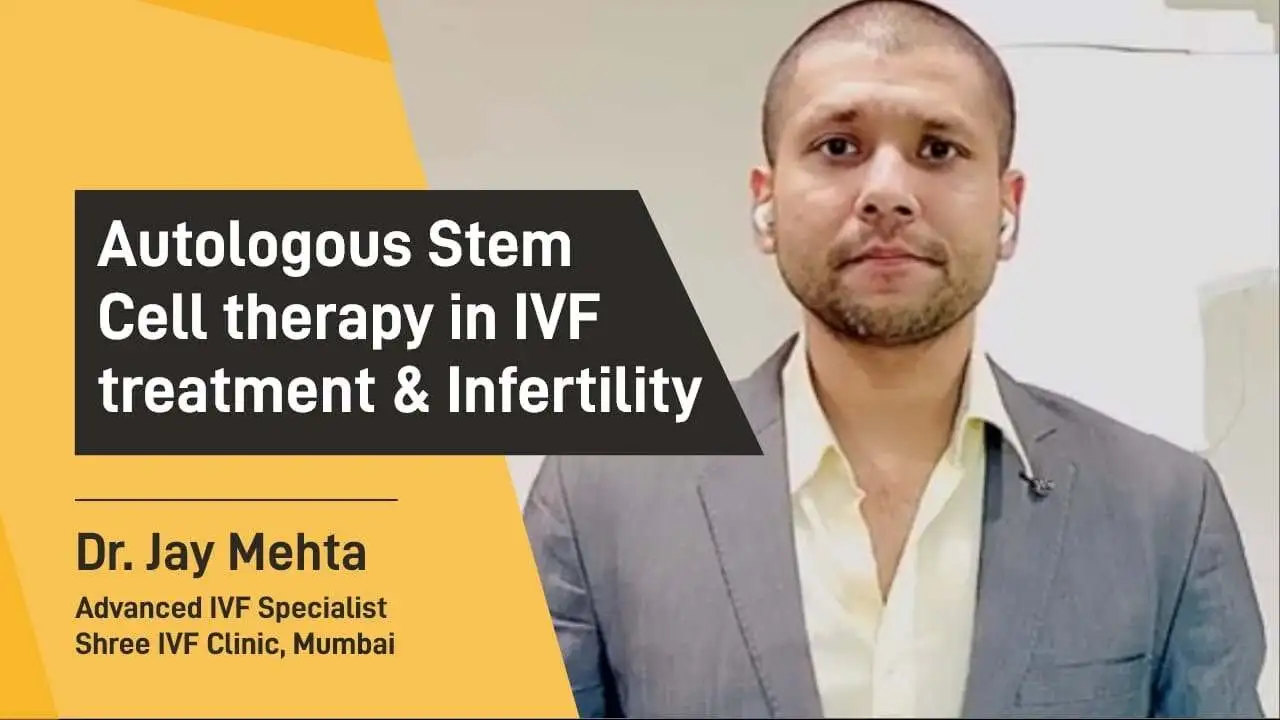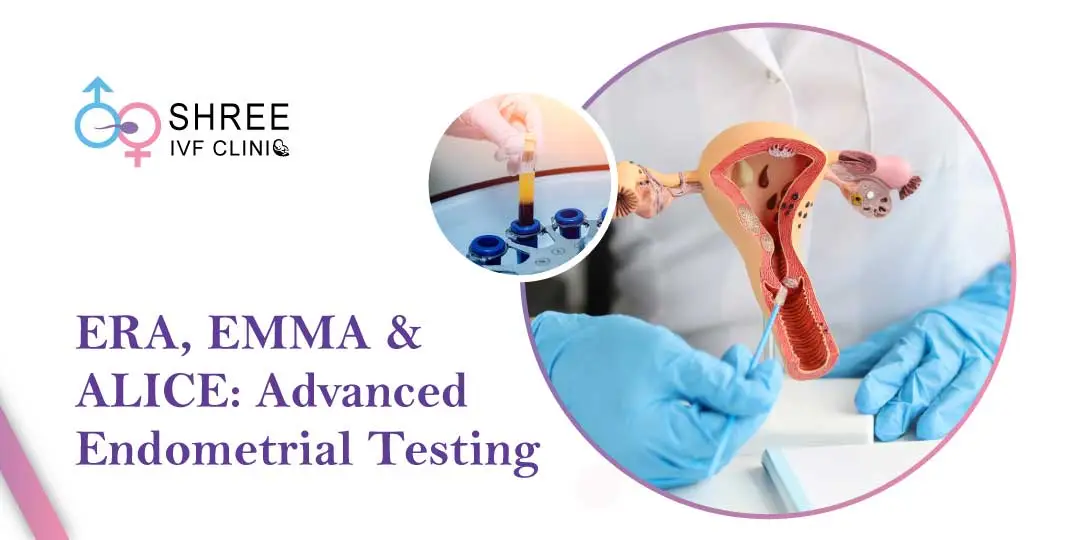Infertility

What is Infertility?
Couples at a certain point in time have the desire to conceive. Many studies have found that almost 85% of the couples successfully conceive within one year of trying. However, if they fail to conceive even after trying every method, there are chances that they might be suffering from infertility.
Infertility is the inability to conceive within one year. Even if the couples fail to conceive within one year, then it is better to consult any reproductive endocrinologist. They must know the right time to take the help of any gynecologist to determine symptoms of infertility.
Everything You Need to Know About Infertility
Symptoms | Types | Male Causes | Complications | Diagnosis | Treatment | Risk Factors | Prevention
What are the symptoms of infertility?
Infertility issues are common in both men and women. When it comes to women, irregular periods or even painful and heavy periods are one of the common symptoms. Normally, cycles are of 28 days, which may or may not exceed.
It is one of the common infertility symptoms in females since irregular cycles are a sign of PCOS, which is associated with infertility. When it comes to infertility in symptoms in men, include low sexual desire, swelling in testicles. Apart from that, issues with maintaining an erection as well as ejaculation problems can also lead to infertility.
Types of infertility
Infertility primarily involves two different types of infertility issues. First, the primary fertility stage refers to those couples who could not conceive after one year. They never use any birth control methods. However, the secondary infertility couples are those who conceived in the past once.
But, the female cannot conceive anymore now. Even after planning everything carefully, the female could not conceive. Secondary infertility type precisely means that the woman is spontaneously facing miscarriage or stillbirths.
What are the causes of infertility?
Infertility causes can affect both men and women. From an unhealthy lifestyle to pre-existing diseases, everything is responsible, that causes infertility. Proper diagnosis is necessary for required treatments.
Male Infertility Causes
Men having abnormal sperm production, genetic defects, or even pre-existing health conditions can cause infertility. Diseases like diabetes, mumps, and STI like HIV or gonorrhea can cause abnormal sperm production rate. Premature ejaculation, genetic ailments like cystic fibrosis, and various psychological problems can even lead to infertility issues.
Few secondary infertility causes in males include overexposure to pesticides as well as other chemicals. Overconsumption of tobacco, alcohol, or other recreational drugs can lead to infertility. Physical injuries in reproductive organs can also lead to infertility issues in men.
Female infertility Causes
Women having impaired ovulation due to excessive eating, injury, hormonal imbalance severely affects egg release. Hormonal imbalance such as PCOS, hypothyroidism, hyperprolactinemia can lead to infertility. Deformed cervix opening, fibroids, and uterine polyp are some of the serious causes of infertility.
Blocked Fallopian tube due to inflammation is yet another one of the major issues behind infertility causes in women. Unwanted growth of endometriosis cells surrounding the uterus can also cause infertility. Pelvic adhesions are quite dangerous for fertility. Band scar tissue binding organs or abdominal surgery can give rise to infertility issues. Some women believe that Meftal Spas are the reason for their fertility, but this is not true.
Book Your Consultation Today With an Infertility Specialist in India – Dr Jay Mehta
Complications of infertility treatment
Although various infertility treatment is quite effective as it helps those couples suffering from pregnancy failures. It has many complications as well, which not only turn out to be acute but also may run for longer periods. Acute complications that arise are related to ovulation induction or oocyte retrieval.
These are some of the short-term complications and do not last long. Whereas, the long-term complications include high chances related to pregnancy complications, mostly imprinting disorders in the newborn, etc. Chances of complications are although high but in most cases, the treatments turn out to be successful.
Diagnosis
Before your doctor asks you to take the infertility tests, they will ask you certain questions to get an idea of your sexual habits. They will also give you recommendations on how you can improve your fertility so that it becomes easy to conceive. In many cases, couples do not show any specific causes behind infertility, also known as unexplained infertility.
When it comes to the diagnosis of infertility, tests can be expensive. In many cases, the tests involve uncomfortable procedures. At times, the medical plans might even not cover the infertility diagnosis costs. Also, it is not guaranteed that you will get pregnant even after taking all the tests.
Infertility tests for men
Male infertility tests are done to check whether the testicles are in the right condition to produce healthy sperm. Apart from that, the ejaculation is done effectively inside the vagina. Semen analysis is an effective test that helps in analyzing sperm quality. Hormone testing is also useful to determine whether the male is fertile enough. A blood test is best to check the testosterone levels. Genetic testing is also useful in detecting infertility when it comes to infertility tests for males. In this process, detection in any genetic defect causing infertility is detected.
Infertility tests for women
Whether a woman is fertile depends on the ovaries and if it releases healthy eggs. Therefore, infertility tests for a female are necessary. The reproductive tracks should not have any blockages and the eggs must move smoothly so that the sperm can fertilize. Ovulation testing is one such effective infertility test, which measures hormone levels to find out if the woman is ovulating.
Ovarian reserve testing is also quite useful since it helps in determining the egg quantity necessary for ovulation. Apart from this, another hormonal testing is also there like pituitary hormone checking, which helps in maintaining the reproductive processes.
Treatment & Care for infertility
Treatment Options for men
Changing lifestyle is one of the primary infertility treatments in males. Excluding particular medications, reducing the intake of harmful substances, increasing the timing of intercourse is quite useful. Next comes the medications since few medications are there that enhances the sperm count.
Medications are quite useful in increasing testicular functions like sperm production as well as quality. Surgery is also a good idea since it helps in reversing sperm blockage issues. Also, surgery helps in repairing varicocele that increases the chances for pregnancy.
Treatment Options for Women
The treatment options vary, while some women need one or two therapies for increasing fertility, others require multiple treatments to get pregnant. Primary infertility treatment in female includes ovulation medications that help in stimulating the ovulation procedure. These medicines either helps in regulating or inducing ovulation.
Most gynecologists discuss the fertility drug options with the patient and focus on how each medication will help in increasing fertility. IUI or Intrauterine Insemination is yet another useful treatment procedure where healthy sperms are placed inside the uterus during ovulation time. Surgeries are also useful as it helps in removing problems like endometrial polyps or any intrauterine scar tissue. Above everything, it is important to remember that infertility treatment cost varies.
Risk factors for infertility
Some of the common factors behind infertility in both men and women are age, weight, sexual history, smoking, etc. With age, both men and women lose the capability of conceiving. The reason behind this is the egg quality and quantity in women degrades, which affects fertility. The sperm count in men reduces too.
Similarly, smoking is also a risk factor as it damages the cervix as well as fallopian tubes. The chances of miscarriages also increase due to smoking. Overweight or obesity is yet another common problem that acts as a risk factor behind infertility in both men and women.
How to prevent infertility?
Preventing infertility requires maintaining a healthy lifestyle. From maintaining a healthy weight to avoiding alcohol and smoking, everything is important. Also, it is necessary to avoid stress since it is responsible for the infertility issue. Limiting caffeine is also necessary to avoid infertility issues. Both men and women must focus on maintaining a healthy lifestyle for a successful pregnancy.

Dr. Jay Mehta
MBBS, DNB—Obstetrics & Gynecology
IVF & Endometriosis Specialist, Laparoscopic Surgeon (Obs & Gyn)
Dr. Jay Mehta is a renowned IVF specialist and fertility-preserving surgeon in Mumbai, India. He is the director of Shree IVF and Endometriosis Clinic, Mumbai. He is a leading laparoscopic gynecologist in India for endometriosis and adenomyosis.
He is a well-known fertility and IVF specialist and also among the few doctors in the country who specialize in embryology and andrology. He operates India’s major cities, including Mumbai, Pune, Chennai, Hyderabad, Bangalore, Ahmedabad, Agra, Delhi etc.
To book an appointment, call: 1800-268-4000 or fill out our contact form

Google Reviews

Ankita Katyal

I am incredibly grateful for Dr. Jay's exceptional support throughout my IVF journey. Dr Jay has been like God sent an Angel for us. From our very first meeting, it was clear that Dr. Jay was not only a highly skilled and knowledgeable professional but also someone who genuinely cared about my well-being.
From my first meeting, he was very clear transparent, and straightforward about my protocol, treatment line, and success rate. After two difficult IVF cycles that failed, I was beginning to lose hope.
However, Dr. Jay’s unwavering encouragement and meticulous care helped me stay positive and focused. Thanks to God and of course to his expertise and dedication, WE FINALLY ACHIEVED SUCCESS!!!!!

Krish A

Dr Jay Mehta is the best Fertility doctor. I am glad to have IVF done with Jay sir.
This unit is very ethical and very honest at work. In my previous IVF cycle, I did not have embryos in Chennai. I was here and Dr and team had told me not to worry. I was given end to end transparency about my embryos and I was lucky to become pregnant in the 1st cycle here, though I was told that the success rate will be about 25 to 30%.
IVF space is competitive, but these guys don't do any Ads on Google. And still if you search, Dr Jay is ranked no.1. I was extremely impressed with that and I am happy that I took a call to travel to Mumbai from Chennai.
I am thankful to the entire team for handling my case nicely. And May God shower the team with his choicest blessings.

Forum Shah

I visited 3 years back for my IVF treatment at that time and also got good treatment with Dr. Jay Mehta … the best part is he would tell me straight away whatever the cause and outcome would be.
This time also I came for Endometriosis treatment n within 3-4 days decided to get operated as there was no looking back as I trust him for his treatment. Thank you Dr once again for the right advice 😊

Deepak Jagadale

Dr Jay Mehta and team are simply excellent people and brilliant outcomes in Fertility services. Very very honest and humble doctor.
Thank you for the valuable guidance during the IVF process and the excellent and no hidden costs during IVF procedure. For middle class people it's a big relief.

Avinash Jain

Dr. Jay Mehta is a result-oriented specialist in his field and the best we could ask for, in a Metro city. His line of treatment for IVF is different from other IVF clinics.
The support provided by doctors and staff as well as all other attending doctors is phenomenal. We are very satisfied and will also highly recommend to others the IVF treatment at Shree IVF Clinic Mumbai.

Vijaya Garg

Dr. Jay Mehta is one of the best gynaecologist doctor of our India. I trust him faithfully and would like to recommend each and every one that don't waste time moving here and there to another doctorand .
I m sharing my experience I wasted my time mand oney by moving from one doctor to other and my problem was unsolved I'm thankful to Dr. Priyanka Shukla mam of trident hospital for suggesting Dr. Jay Mehta sir for my treatment . Now I'm pain-free...Thank you Dr. Jay Mehta sir... you are really my Boley baba shiv shsmbu. I m thankful to all the staff members of Shree IVF hospital
Blogs

How Long Can Sperm Live Inside the Female Body?
Sperm live inside the female body depends on a certain number of factors. sperm can survive inside female partner’s body is 5 days.

Difference between Primary & Secondary Infertility
In this blog, we’ll understand the difference between Primary & Secondary Infertility.
Videos

Ovarian Stem Cell Transplant (Age 40-50): Does It Work?
Stem cell ovarian transplant may help restore fertility and hormone levels in women 40-50, but its effectiveness remains under clinical research

Autologous Stem Cell therapy in IVF & Infertility Treatment
Autologous Stem Cell Therapy offers hope for women with low AMH and thin endometrium, improving IVF outcomes for those facing early fertility issues
Q&A’s

Advanced Endometrial Testing Explained: ERA, EMMA & ALICE
What are ERA, EMMA & ALICE tests? They are advanced tests that check if your uterus is ready for embryo implantation and can help improve IVF success

Advanced Endometrial Testing Explained: ERA, EMMA & ALICE
What are ERA, EMMA & ALICE tests? They are advanced tests that check if your uterus is ready for embryo implantation and can help improve IVF success

